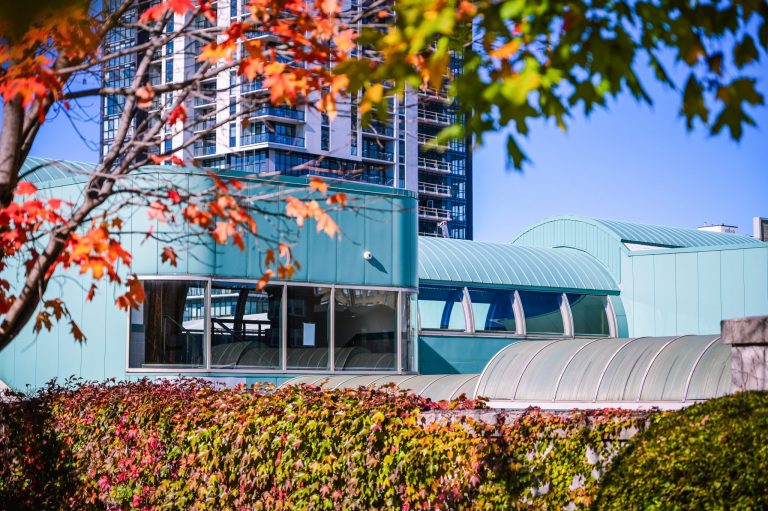The first National Day for Truth and Reconciliation on Sept. 30 was a day not just for reflection, but also for action. Bangishimo Johnston, a local Indigenous rights activist and leader, started a petition at the time calling for local leaders to create a permanent space for Indigenous communities to gather, connect and celebrate their cultures.
Waterloo Land Back activists created a petition which called for the former Grand River Transit Charles Transit Hub site in downtown Kitchener. Petition signee Melissa Roe voiced her support for the space.
“16,000 Indigenous people live in this region and are asking for a community hub to continue to deepen cultural connection. I couldn’t imagine a better use for this space,” Roe said.
Anthony Warren, another petition signee, wrote that he supported an Indigenous hub as part of reconciliation.
“This is important for our Indigenous community members and an important part of Reconciliation,” Warren said.
The Region of Waterloo owns the site and it has remained out of use for transit since the launch of the ION light rail transit system in 2019. Since launching, the petition has received over 3,000 signatures.
Johnston said Indigenous groups have tried to create a community space for over a decade. Groups used the pavilion space in Victoria Park but were frustrated at the costs associated with using the facilities.
“One of our demands was that all fees be waived for the Indigenous community to be able to gather. We were watching our own community members struggle with trying to come up with $500 to have a community feast at the pavilion. We were asking ourselves, ‘why should we have Indigenous people have to pay fees to gather on our own land?’,” Johnston said.
An agreement was reached with Kitchener to waive the fees, but the COVID-19 pandemic struck and gatherings were no longer possible. The discovery of hundreds of graves at former residential school sites in the summer of 2020 inspired a renewed push to find a dedicated space.
Johnston said they found support for the idea of using the former transit hub from multiple groups, including students from the University of Waterloo’s School of Architecture. The students’ program included a project working with a local community group.
“We met with them a number of times and gave them ideas of what we thought an Indigenous community space might look like in downtown Kitchener. They provided us with these amazing blueprints of what it could look like,” Johnston said.
While the former transit hub site would be ideal, Johnston said the blueprints and the suggestion of the former transit hub are more a starting off point for a conversation on what an Indigenous space could look like. They said other local groups and leaders, including ReallocateWR and Ward 9 councillor Debbie Chapman, have voiced their support to move the conversation forward.
While there has been support for the plan, Johnston said they were disappointed to see the City of Kitchener ask for suggestions on uses for the transit hub site. They said responses have included everything from a grocery store to options for affordable housing.
“Affordable housing is actually part of the blueprints right now. We would love for it to maybe become a home to the K-W Urban Native Wigwam Project or possibly using The Healing of the Seven Generations or any other Indigenous organizations,” Johnston said.
Johnston said they do not speak for every Indigenous community member. Johnston and fellow Land Back Camp organizer Amy Smoke are meeting with leaders from other local Indigenous organizations to discuss the petition and different options for creating a permanent space for the Indigenous communities.
“It’s not up to me and Amy. We’re just two folks who want to see change happen within their region. We do not speak for the local Indigenous communities. But change needs to take place. The community has been asking for this for the last ten years,” Johnston said.
Regardless of what happens with the site, Johnston wants the community to know that a permanent space for Indigenous communities is critical to moving reconciliation forward.
“We do not have our own community gathering space, and that’s so important. It would just be nice for us to be centralized in an accessible space like the terminal. If it doesn’t go there, I would really like to continue working with the Region and help them find a place that is acceptable for the Indigenous community,” Johnston said.

